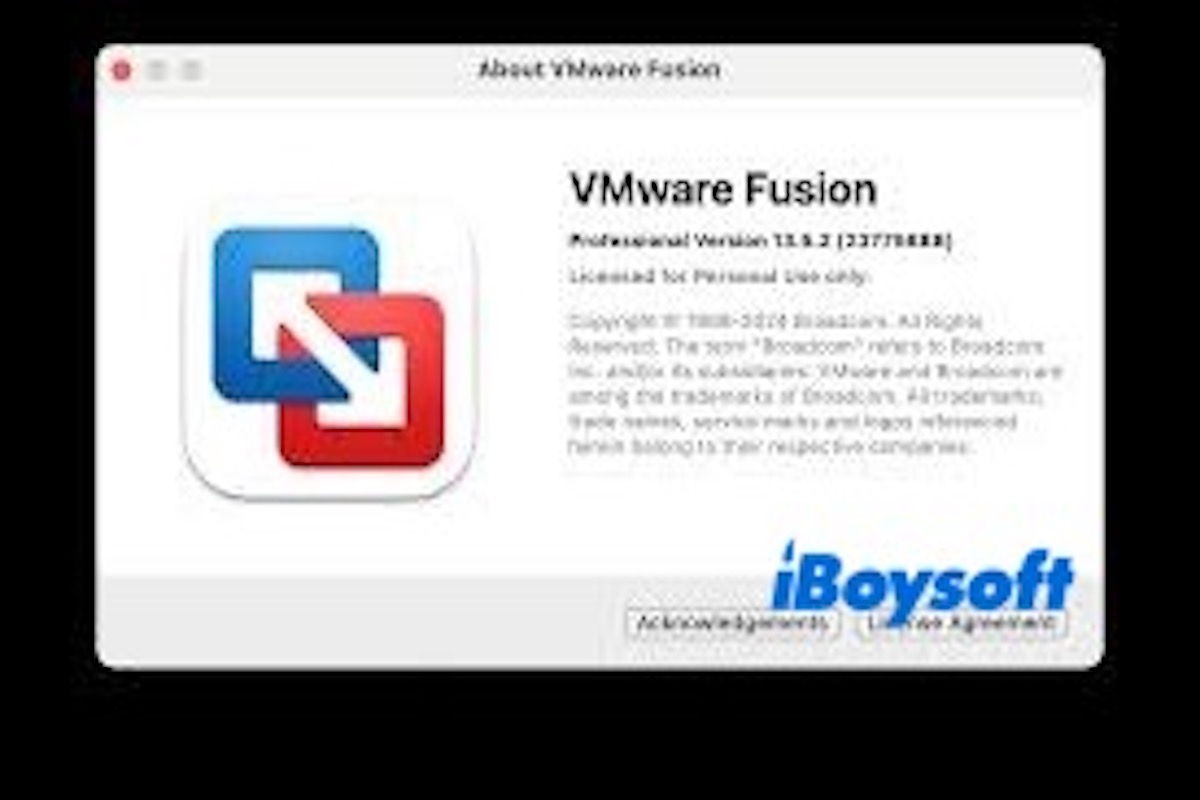If you rely on VMware Fusion to run virtual machines on your Mac, you've probably asked yourself: “Does a VMware Fusion upgrade mean I need to update every virtual machine's OS?” The answer is no.
While VMware Fusion updates can bring new features, performance improvements, and better macOS integration, they don't force you to upgrade your VM operating systems. In this article, we'll explore what happens when you upgrade VMware Fusion, how it affects your VMs, etc.
Can You Upgrade the OS on a VM
Sure, you can upgrade the operating system inside any virtual machine just like you would on a physical computer. For instance, you can go from Windows 10 to Windows 11 or from Ubuntu 20.04 to 22.04.
However, this process is completely separate from upgrading VMware Fusion itself. Whether or not you choose to upgrade the guest OS depends on your workflow, software requirements, and system compatibility.
Do You Need to Update Every VM's Operating System
Upgrading VMware Fusion does not require you to upgrade the OS of every virtual machine. You can continue using older guest operating systems like Windows 7, Windows XP, or older versions of Linux and macOS if they meet your needs.
This is especially helpful for developers and IT professionals who work with legacy systems. However, some advanced features introduced in new Fusion versions may only be available to newer guest OSs. So, you can update VM's operating system if needed.
Share this part with more people to help them learn more about VMware!
What Happens When You Upgrade VMware Fusion on Mac
When you install a newer version of VMware Fusion on your Mac, the core application is updated, bringing new features, better macOS compatibility, and enhanced performance.
Your existing virtual machines remain untouched unless you specifically choose to update them. You may also receive prompts to upgrade virtual hardware or VMware Tools, but those steps are optional.
Tips for a Smooth VMware Fusion Upgrade on Mac
Upgrading VMware Fusion on your Mac can unlock better performance, new features, and enhanced macOS compatibility. However, to avoid disruptions or data loss, it's important to prepare both your software and virtual machines before proceeding. Here are some practical tips to ensure a smooth upgrade:
- Check compatibility. Verify that the new version of VMware Fusion supports your current macOS and hardware before installing.
- Back up your virtual machines. Always create a full backup of your VMs by copying the .vmwarevm files to an external drive or cloud storage.
- Install VMware Fusion before launching VMs. Upgrade the Fusion app first, then launch your VMs to allow any needed configuration changes.
- Update VMware tools. After starting each VM, update VMware Tools to ensure optimal performance and compatibility with the new version.
- Review virtual hardware settings. Try to upgrade the VM's virtual hardware version, but only if the guest OS supports it and you've backed it up.
Share this article with more people if you find it useful!
